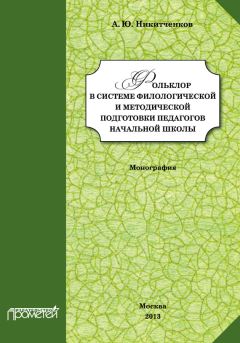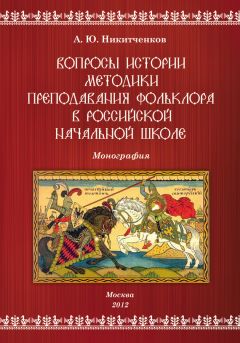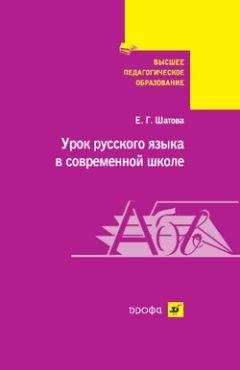Илья Франк - Английский язык с В. Ирвингом. Рип ван Винкль
"Where's Van Bummel, the schoolmaster?"
"He went off to the wars too, was a great militia general, and is now in congress."
Rip's heart died away (сердце Рипа замерло) at hearing of these sad changes in his home and friends (слыша об этих грустных переменах /произошедших/ у него дома и с его друзьями) and finding himself thus alone in the world (и оказываясь: «находя себя» таким одиноким в мире; thus [DAs] — так, таким образом; в соответствии, соответственно; до такой степени). Every answer puzzled him too (каждый ответ его также ставил в тупик), by treating of such enormous lapses of time (относясь = так как относился к такому большому промежутку времени), and of matters (и к делам) which he could not understand (которые он не мог понять): war (война) — congress (конгресс) — Stony Point (Стони Пойнт) —, — he had no courage to ask after any more friends (ему не хватило: «не имел никакой» храбрости расспросить еще о других друзьях), but cried out in despair (но только закричал в отчаянии), "Does nobody here know Rip Van Winkle (неужели никто здесь не знает Рипа ван Винкля)?"
"Oh, Rip Van Winkle! (о, Рип ван Винкль)" exclaimed two or three (воскликнули двое или трое; to exclaim [Iks’kleIm] — восклицать), "Oh, to be sure (о, несомненно)! that's Rip Van Winkle yonder (это вон там /стоит/ Рип ван Винкль; yonder [‘jOndq] — вон тот; вон там; в ту сторону), leaning against the tree (прислонившись к дереву)."
Rip's heart died away at hearing of these sad changes in his home and friends, and finding himself thus alone in the world. Every answer puzzled him too, by treating of such enormous lapses of time, and of matters which he could not understand: war — congress — Stony Point —, — he had no courage to ask after any more friends, but cried out in despair, "Does nobody here know Rip Van Winkle?"
"Oh, Rip Van Winkle!" exclaimed two or three, "Oh, to be sure! that's Rip Van Winkle yonder, leaning against the tree."
Rip looked (Рип посмотрел), and beheld a precise counterpart of himself (и увидел точную копию самого себя; to behold [bI’hqVld] — beheld [bI’held] — beheld — видеть, замечать; пристально смотреть, вглядываться; precise [prI’saIz] — точный; определенный; членораздельный, отчетливый; counterpart [‘kaVntqpQ:t] — дубликат, копия; двойник), as he went up to the mountain (каким он поднялся в гору): apparently as lazy (по-видимому, столь же ленивый), and certainly as ragged (и, несомненно, столь же оборванный). The poor fellow was now completely confounded (бедный малый был окончательно приведен в замешательство; to confound [kqn’faVnd] — мешать; запутывать; смущать, приводить в замешательство, ставить в тупик). He doubted his own identity (он засомневался в собственной личности; to doubt [daVt] — бояться; подозревать; сомневаться, не доверять; identity [aI’dentItI] — идентичность, тождество; подлинность; личность), and whether he was himself (и был ли он самим собой) or another man (или другим человеком). In the midst of his bewilderment (/когда он находился/ на вершине: «посреди» своего замешательства; bewilderment [‘bI’wIldqmqnt] — смущение; замешательство; недоумение; неясность, путаница), the man in the cocked hat demanded (человек в треуголке спросил) who he was (кто он был), and what was his name (и как было его имя)?
Rip looked, and beheld a precise counterpart of himself, as he went up to the mountain: apparently as lazy, and certainly as ragged. The poor fellow was now completely confounded. He doubted his own identity, and whether he was himself or another man. In the midst of his bewilderment, the man in the cocked hat demanded who he was, and what was his name?
"God knows (Бог /его/ знает)," exclaimed he (воскликнул он), at his wit's end (не зная, что делать: «на концах ума»); "I'm not myself (я — это не я сам) — I'm somebody else (я кто-то другой) — that's me yonder (я вон там) — no (нет) — that's somebody else (там кто-то другой) got into my shoes (занявший мое место: «забравшийся в мои туфли») — I was myself last night (я был собой прошлой ночью), but I fell asleep on the mountain (но я уснул на горе), and they've changed my gun (а они подменили мое ружье), and every thing's changed (и все изменилось), and I'm changed (и я изменился), and I can't tell (и я не могу сказать) what's my name (какое у меня имя), or who I am (или кто я есть)!"
"God knows," exclaimed he, at his wit's end; "I'm not myself — I'm somebody else — that's me yonder — no — that's somebody else got into my shoes — I was myself last night, but I fell asleep on the mountain, and they've changed my gun, and every thing's changed, and I'm changed, and I can't tell what's my name, or who I am!"
The by-standers began now to look at each other (зеваки начали теперь смотреть друг на друга), nod (кивать), wink significantly (подмигивать многозначительно; significant [sIg’nIfIkqnt] — значительный, важный, существенный; многозначительный; выразительный), and tap their fingers against their foreheads (и стучать своими пальцами по лбам; forehead [‘fOrId] — лоб). There was a whisper, also (кто-то также зашептал: «там был шепот также»; whisper [‘wIspq] — шепот; молва; намек), about securing the gun (о том, что нужно завладеть ружьем: «о завладении ружьем»; to secure [sI’kjVq] — охранять; защищать; обеспечивать безопасность; страховать; завладевать), and keeping the old fellow from doing mischief (и удержать старика от злодеяния; mischief [’mIstSIf] — вред; убытки; беда, зло; озорство, проказы), at the very suggestion of which (при самом намеке о котором; to suggest [sq’Gest] — советовать; предлагать; намекать) the self-important man in the cocked hat retired (важный человек в треуголке отступил) with some precipitation (с некоторой поспешностью). At this critical moment (в этот критический момент) a fresh comely woman pressed through the throng (свежая: «молодая» миловидная женщина прорвалась сквозь толпу; fresh [freS] — свежий; натуральный; чистый; только что появившийся; дополнительный; comely [‘kAmlI] — привлекательный, миловидный, хорошенький; throng [TrON] — толпа, толчея; множество, скопление) to get a peep at the gray-bearded man (поглядеть на седобородого мужчину; peep [pi:p] — беглый взгляд; тайный взгляд, взгляд украдкой). She had a chubby child in her arms (у нее на руках был толстощекий ребенок; chubby [‘tSAbI] — круглолицый; полнощекий), which, frightened at his looks (который, испугавшись его вида), began to cry (начал плакать). "Hush, Rip (тише, Рип; hush [hAS] — ш-ш!, тс!, тише!, замолчи!)," cried she (вскричала она), "hush, you little fool (тише ты, маленький дурачок); the old man won't hurt you (старичок не обидит тебя; to hurt [hq:t] — hurt — hurt — причинять боль; ранить; перен. обижать; задевать)." The name of the child (имя ребенка), the air of the mother (вид его матери), the tone of her voice (тон ее голоса), all awakened a train of recollections in his mind (все пробудило шлейф воспоминаний в его мозгу; to awake [q’weIk] — awoke [q’wqVk] — awaken [q’weIkn] — будить; пробуждать; train — шлейф /платья/; длинный хвост /павлина, кометы/; to train — тянуть, тащить). "What is your name, my good woman (как твое имя, любезная: «моя хорошая женщина»)?" asked he (спросил он).
"Judith Gardenier (Джудит Гарденир)."
"And your father's name (а имя твоего отца)?"
The by-standers began now to look at each other, nod, wink significantly, and tap their fingers against their foreheads. There was a whisper, also, about securing the gun, and keeping the old fellow from doing mischief, at the very suggestion of which the self-important man in the cocked hat retired with some precipitation. At this critical moment a fresh comely woman pressed through the throng to get a peep at the gray-bearded man. She had a chubby child in her arms, which, frightened at his looks, began to cry. "Hush, Rip," cried she, "hush, you little fool; the old man won't hurt you." The name of the child, the air of the mother, the tone of her voice, all awakened a train of recollections in his mind. "What is your name, my good woman?" asked he.
"Judith Gardenier."
"And your father's name?"
"Ah, poor man (ах, бедняга), Rip Van Winkle was his name (Рип ван Винкль было его имя), but it's twenty years since (но уже двадцать лет с тех пор, как) he went away from home with his gun (он ушел из дому со своим ружьем), and never has been heard of since (и ничего: «никогда» о нем не было слышно с тех пор) — his dog came home without him (его собака пришла домой без него); but whether he shot himself (но или он застрелил себя; to shoot — стрелять), or was carried away by the Indians (или был унесен = уведен индейцами), nobody can tell (никто не может сказать). I was then but a little girl (я была тогда всего лишь маленькой девочкой)."
"Ah, poor man, Rip Van Winkle was his name, but it's twenty years since he went away from home with his gun, and never has been heard of since — his dog came home without him; but whether he shot himself, or was carried away by the Indians, nobody can tell. I was then but a little girl."
Rip had but one question more to ask (у Рипа был еще один вопрос, который надо было задать: «спросить»); but he put it with a faltering voice (но он задал его дрожащим голосом; to falter [‘f O:ltq] — спотыкаться; ковылять; заикаться; колебаться):
"Where's your mother (где твоя мать)?"
"Oh, she too had died (о, она тоже умерла) but a short time since (спустя короткое время = вскоре после этого); she broke a blood-vessel (у нее лопнул кровеносный сосуд) in a fit of passion (в разгаре вспышки гнева; passion [‘pxS(q)n] — страсть; взрыв чувств; вспышка гнева) at a New-England peddler (на торговца из Новой Англии; peddler [‘pedlq] — коробейник; разносчик; розничный торговец)."
Rip had but one question more to ask; but he put it with a faltering voice:
"Where's your mother?"
"Oh, she too had died but a short time since; she broke a blood-vessel in a fit of passion at a New-England peddler."
There was a drop of comfort, at least (по крайне мере, там была капля утешения), in this intelligence (в этой новости; intelligence [In’telIG(q)ns] — интеллект; сообразительность; информация, сведения). The honest man could contain himself no longer (честный человек не смог себя больше сдерживать). He caught his daughter and her child in his arms (он поймал: «заключил» свою дочь и ее ребенка в объятья). "I'm your father (я твой отец)!" cried he (вскрикнул он) — "Young Rip Van Winkle once (однажды молодой Рип ван Винкль) — old Rip Van Winkle now (старый Рип ван Винкль сейчас)! — Does nobody know poor Rip Van Winkle (разве никто не знает бедного Рипа ван Винкля)?"
There was a drop of comfort, at least, in this intelligence. The honest man could contain himself no longer. He caught his daughter and her child in his arms. "I'm your father!" cried he — "Young Rip Van Winkle once — old Rip Van Winkle now! — Does nobody know poor Rip Van Winkle?"
All stood amazed (все стояли ошеломленные), until an old woman (пока одна старушка: «старая женщина»), tottering out from among the crowd (дрожащей походкой вышедшая из толпы), put her hand to her brow (/не/ приложила руку к глазам: «бровям»), and peering under it in his face for a moment (и вглядываясь из-под нее в его лицо некоторое время), exclaimed (воскликнула), "Sure enough (точно достаточно = это точно так)! it is Rip Van Winkle (это Рип ван Винкль) — it is himself (это он сам)! Welcome home again (добро пожаловать опять домой), old neighbor (старый сосед) — Why, where have you been these twenty long years (ну, где же ты был эти двадцать долгих лет)?"



